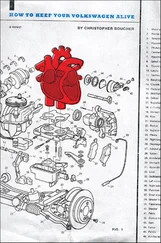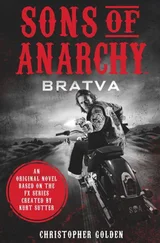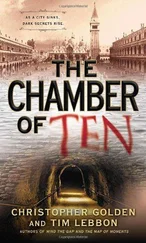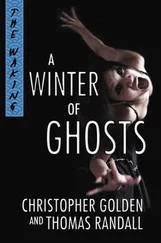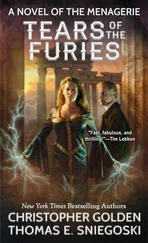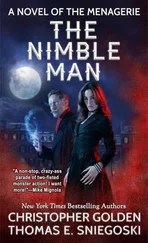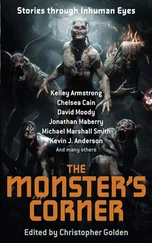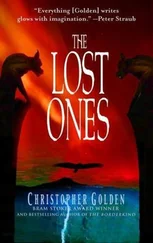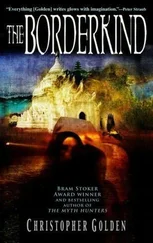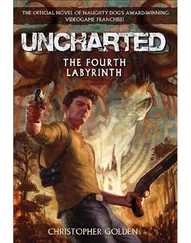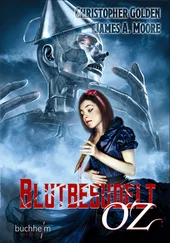I don’t know what they said? But the next day, my Dad went to Muir Drop Forge and filled out an application. They hired him on the spot. He came home that night with his hands and arms covered in the soot of toil.
Soon, my sister’s auctions became unwieldy. There were two hundred people at our house every day; the traffic got so bad that my Dad had to park his truck across the street in the worryfields. Word of my sister’s talents traveled. She was a celebrity — there were articles every week about her in the gossip page of The Daily Core .
One afternoon that fall, I was watching the auction from the roof with Sentence by my side when I noticed a hooded figure in the back of the crowd. I couldn’t see his face — I’m still not sure that he had a face — nor did I see him arrive. He was just suddenly there , in a dark orange velvet cape, standing silently. When the auction was over, he waited until the crowd dispersed and then stepped forward to the pulpit to speak with my sister. I couldn’t hear what he said, but after a few minutes my sister brought the man into the house to see my Dad. I climbed back inside and ran down the stairs to see the three of them — my Dad, my sister, and the hooded man — sitting at the dining-room table. “Go to your room,  ,” my Dad said.
,” my Dad said.
“Who’s that?” I said.
“Go,” my Dad said.
I went down into the basement, but I sent two of my thoughts reconning to record the conversation. The hooded man’s voice was like a bubbly stream — his words all ran together. He said that he was from a famed auction school somewhere far beyond the margin — some place called Pilgrim Auctions — and that he was here because he’d heard the stories about my sister. He wanted my father’s permission for my sister to attend his school for auctioneers. “She’sgifted,” said the hooded man, “butwhatyouseehereisjustthebeginning.”
“She’s doing just fine right here in Appleseed,” said my Dad.
“I-could-do-better,” my sister said.
“Shecould,” said the hooded man.
“She’s just started,” my Dad said.
“Nottrue — shesalways been anauctioneer,” said the man.
“She has?” my Dad said.
“Andshe could bethebesttheverybestauctioneerthatAppleseedhaseverseen,” he told my father.
“We’re very flattered,” said my father. “But Briana has a bright future—”
“My-name-is-the- Auctioneer ,” said the Auctioneer.
“—college,” my Dad said. “A meaningful career.”
“You’re-not-being-fair!” my sister shouted.
“Auctioning here at home is one thing,” my Dad said to her. “Leaving home at sixteen years old is another.”
“ Mom -left!” she said. “Why-can’t-I?”
“Mom didn’t leave ,” said my Dad. “She’s helping protect Appleseed.”
“This-is-my- dream !” shouted the Auctioneer.
“The answer is no,” my Dad said.
At that point, my thought said, the hooded man stood up and walked out of the house. When I looked out my bedroom window I saw him floating down Converse Street.
My sister was hysterical. She ran to her room and slammed the door. “What-about-what- I -want!” she hollered from behind the door. “I-hate-it-here! I-hate-this- house !”
“What did I do?” the house said.
I knocked on her door. “Bri,” I said. “Can I come in?”
“No!” she said. “Go away!”
The house began to cry a little. “All I’ve ever been is nice to you.”
I went back to my sister’s room an hour later and knocked again. “Bri?” I said. “Auctioneer?” This time she didn’t answer at all.
“You asleep?” I asked.
I stood there for a minute and then went back down to the basement.
The next morning I walked upstairs and saw the door to the Auctioneer’s room ajar. I went in. The drawers in her dresser were open and there were clothes everywhere. I opened her closet door; her suitcase wasn’t there.
I ran downstairs and looked in every room. I sprinted out to the backyard and then into the front yard and looked up and down our street. “I am.” followed me, whimpering. I stood there for a few minutes, staring one way and the other. My sister wasn’t anywhere. The Auctioneer was gone.
The following summer — the summer before my junior year at Appleseed High — I began dating the Appleseed Community Theater. I met her by accident, when I was walking Sentence one day in downtown Appleseed. All of a sudden he started pulling me toward an unfamiliar building. Sentence had very good hearing, though, and he often got excited when he heard other sentences — even if I, myself, couldn’t hear them. When he started sniffing the steps of the small wooden building, I heard talking inside.
“Cute clause,” said the building. “What’s his name?”
“Sentence,” I said. “He heard people talking, and—”
“Yeah. We’re putting on a trueplay,” said the building.
I looked up at her. The sign above the door read APPLESEED COMMUNITY THEATER. “A true what?” I said.
“Play. Theater,” said the theater.
I’d seen theater productions in my high school. I said, “I didn’t know there was any theater in Appleseed.”
“Yeah — just moved here from Cambridge,” said the theater.
Sentence lunged at the leash.
“They’re rehearsing — you can watch if you want,” she said.
We stepped inside and saw rows of empty seats and a bright stage full of people and sentences. A man dressed like a sea captain was having a conversation with an old boat. The boat was storming back and forth across the stage, shouting out a plot for revenge. “Let’s say that buoy disappears somewhere.”
“But where?” the captain said.
“Doesn’t matter where,” said the boat. “Just so long as it’s kept quiet.”
We stepped outside after a few minutes, and I thanked the theater. “I’ll come back and see the show,” I said.
“And we’re looking for help if you know anyone. We still need a props master.”
“A what?” I said.
That was a great time for me — a season of promise and discovery. I did the props for every show that season— Dandelion Braise, Stormnote , and Too Many Bagels —and grew to really love working in the theater. It was located in a bad neighborhood, full of meaninglessers — two times I had the seats of my Bicycle Built for Two stolen — but I didn’t care. I liked having somewhere to go in the afternoons after school, and I could usually find most of the props that I needed at the flea bee.
Plus, you weren’t ever alone when you worked on a show — every cast and crew was like a family. I saw the director, Eric Wig, and his wife Ellen, who often played the leads, every day, while I hardly saw my own family at all. It didn’t seem to matter to anyone there that I was ugly and unremarkable — I was willing to work, and everyone seemed to appreciate that. My thoughts were always buoyant when a new show began. When one ended, I couldn’t get those thoughts off the couch if their lives depended on it.
Three weeks into rehearsals for Stormnote , though, the old trombone who was cast as the Old Man had an aneurysm on stage and died. I was right there when it happened. He was supposed to say his lines—“Are those vultures ?”—and then shake his fist. At that moment he stepped forward and said, “Are those — whose vultures are those?”
Читать дальше
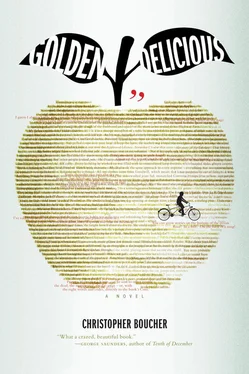
 ,” my Dad said.
,” my Dad said.
